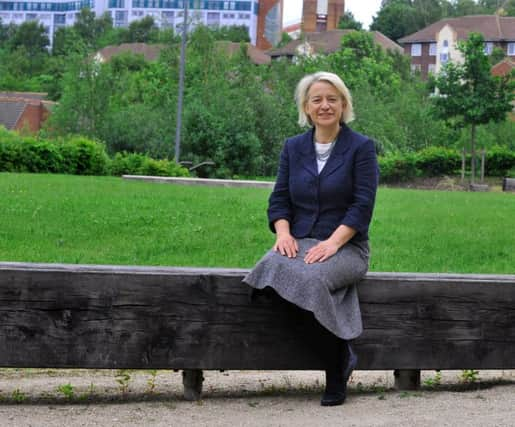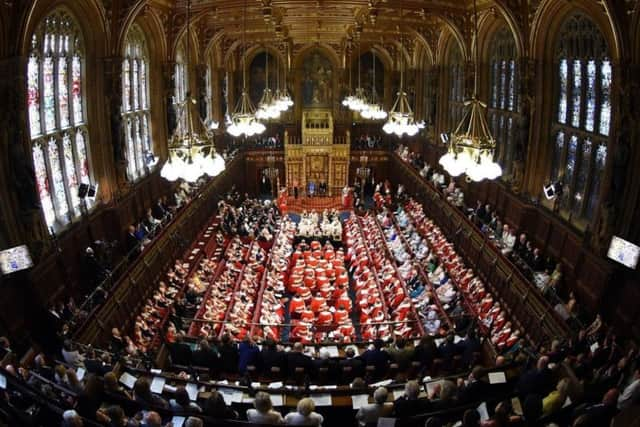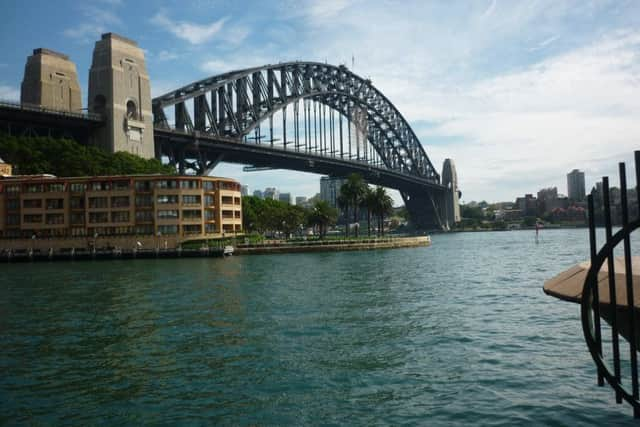I may be a Green Party peer now but I will campaign to abolish the House of Lords – Natalie Bennett


It gave me the handy capacity that continues to this day to sleep through any level of background noise.
You would have got very good odds against that baby ending up as the second Green Party peer, the person who I’m pleased to say is boosting our representation in the House of Lords by 50 per cent.
Advertisement
Hide AdAdvertisement
Hide Ad

This is still far short of the level of support we’ve enjoyed again and again in the country, whether from the two million people who voted Green in the European elections in May or the one million who chose us in the 2015 general election when I was leader.
One of my earliest memories is visiting my grandmother to see the moon landing on her enormous (of course black-and-white) television in the corner of the living room that had four china ducks flying up the wall.
Advertisement
Hide AdAdvertisement
Hide Ad

The world has changed a lot since then, and not in the ways people predicted. The climate emergency is clearly upon us. The oceans have been turned into a plastic soup and our poor-choked planet can’t take much more pollution. Our soils on which we depend for sustenance are being eroded and degraded far faster than nature can replace them. Our fresh water supplies are under desperate pressure.
The social emergency is just as urgent. Insecurity is visible in the fast-growing homelessnes on our streets. Desperation is evident in the horrendous growth of foodbanks, struggling to keep up with the need. Young people start life weighed down with debt, pressured with the message that just one exam slip, one youthful failure, can lead to an epidemic of mental ill-health.
Yet this is a time of massive opportunity. Change is inevitable. Where we are now is profoundly unstable, and that is good news. That doesn’t mean going backwards to the 1960s that I was born into – certainly not, when I think of how my mother’s opportunities in life were choked off by sexism and disrespect for her achievements. But it does mean building on the developments of my lifetime.
Advertisement
Hide AdAdvertisement
Hide AdI wrote a thesis about the internet in 2001, yet that now looks like ancient history – BT, Before Twitter. There’s often focus on the negatives but social media gives us the opportunity to network across the continent and across continents, breaking barriers of language and borders, in campaigns that can imagine a new world, take on the power of multi-nationals and help build this new reality.
We now know that to understand soils it is not chemistry to which we need to look (as I was taught in the late 1980s), but biology, that there’s a million organisms in a teaspoon of healthy soil. And in the last few years we’ve learnt that one of the largest organs of our bodies is the microbiome, whose cells far outnumber our human composition, that help to determine our diet, our mental health and that depend on the health of the environment around us.
Women have come a long way. Few women in the Global North are told now, as my mother was when I was 10, that “you’re the best candidate for this job, but your child might get ill so we won’t give it to you”. But there’s still a vastly long way to go to ensure every girl child, in the UK or anywhere in the world, has the same opportunities as her brother.
When I walk into the Lords for the first time, I’ll be there with the avowed intention, like my fellow Green peer Jenny Jones, of working as hard as I can to see it abolished. And I believe that is possible. Indeed a near-certainty. For the UK’s politics is clearly not working, our creaking system, with elements of the 18th, 19th and 20th-century accidentally accreted into an anachronistic muddle, has failed.
Advertisement
Hide AdAdvertisement
Hide AdIt will change. As our economic structures and our social framework has changed, we have the opportunity to shape and re-form them now, as Margaret Thatcher and Ronald Reagan massively shaped and formed the last 40 years.
I’ll be aiming to do my modest part towards that from Sheffield and Westminster, guided by the principle that there are enough resources in the world for everyone to have a decent life if we just share them out fairly. But that means a Green philosophy of respect for people and planet. Security and respect – those are the basics that everyone should have the right to expect – which the past 40 years have utterly failed to deliver. I want to bring my experiences to change that.
Natalie Bennett from Sheffield is a former leader of the Green Party. She was made a life peer this week.